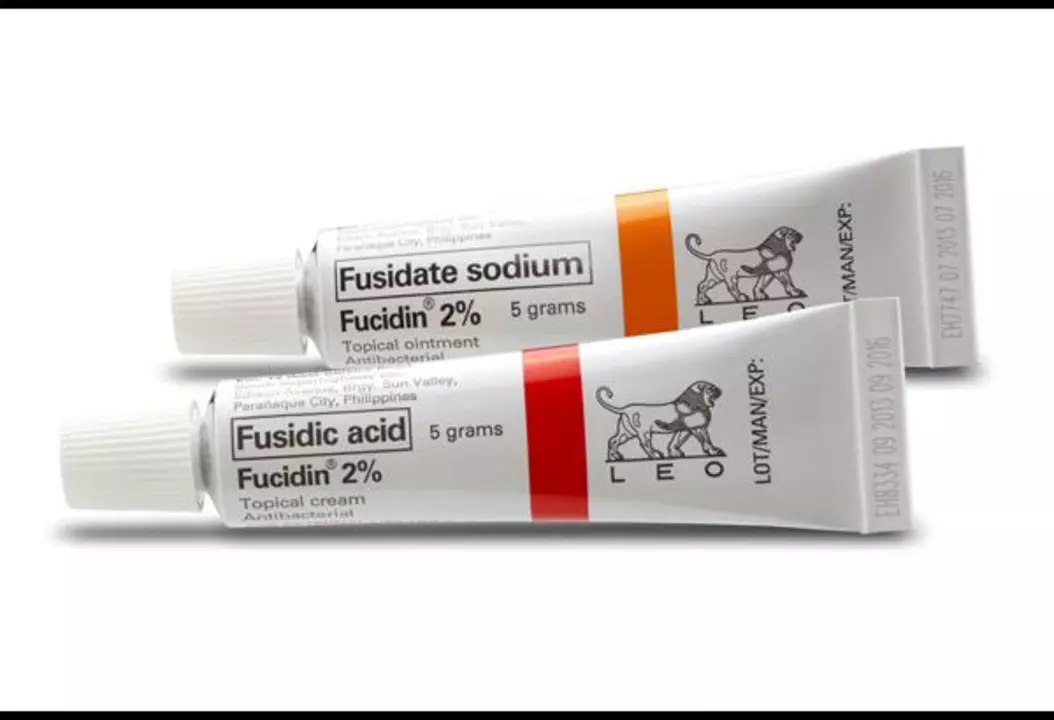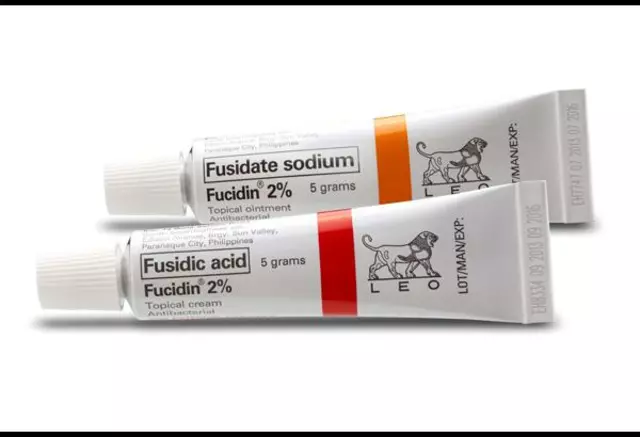An Introduction to Fusidic Acid and Folliculitis
Folliculitis is a common skin condition that affects millions of people worldwide. In this article, we will discuss the efficacy of fusidic acid in treating folliculitis. Fusidic acid is a powerful antibiotic that has been proven to be effective in combating bacterial infections, including those of the hair follicles. We will dive into the details of this treatment option and provide you with the information you need to make an educated decision about your folliculitis treatment.
What is Folliculitis and What Causes It?
Folliculitis is an inflammation of the hair follicles, which can result in the formation of small, pus-filled bumps on the skin. This condition can be caused by a variety of factors, including bacterial or fungal infections, irritation from shaving, and friction from tight clothing. In many cases, the condition is caused by the bacteria Staphylococcus aureus, which is commonly found on the skin. When the bacteria infect the hair follicles, it can lead to the development of folliculitis.
Understanding Fusidic Acid as a Treatment Option
Fusidic acid is an antibiotic that is effective in treating bacterial infections caused by gram-positive bacteria, such as Staphylococcus aureus. This medication works by inhibiting the growth of bacteria, allowing the body's immune system to fight off the infection. Fusidic acid is available in various forms, including creams and ointments, which can be applied directly to the affected area. This makes it a convenient and effective treatment option for folliculitis.
How to Use Fusidic Acid for Folliculitis
Before starting any new medication, it is crucial to consult your doctor or healthcare provider to determine if it is the right treatment for your specific condition. If fusidic acid is deemed appropriate, your doctor will provide instructions on how to use the medication. In general, fusidic acid should be applied to the affected area two to three times a day, with a thin layer of the cream or ointment gently rubbed into the skin. It is important to continue the treatment for the full duration prescribed by your doctor, even if the symptoms appear to have improved, as stopping early may result in the infection returning.
Side Effects and Precautions
As with any medication, there may be some side effects associated with the use of fusidic acid. Some of the most common side effects include itching, burning, or irritation at the application site. These side effects are generally mild and should subside as your body adjusts to the medication. If you experience any severe or persistent side effects, it is essential to contact your healthcare provider immediately. Additionally, fusidic acid should not be used by individuals who have a known allergy to the medication or any of its components.
Alternatives to Fusidic Acid for Folliculitis Treatment
While fusidic acid is an effective treatment option for many cases of folliculitis, there are alternative treatments available for those who cannot use the medication or do not find it effective. Other potential treatments include oral antibiotics, antifungal medications, and over-the-counter topical treatments. It is essential to discuss all treatment options with your healthcare provider to determine the best course of action based on your specific condition and medical history.
Preventing Folliculitis from Recurring
Although fusidic acid is an effective treatment for folliculitis, it is also important to take steps to prevent the condition from recurring. Some preventative measures include maintaining proper hygiene, avoiding tight clothing that can cause friction on the skin, and ensuring that razors and other personal grooming items are clean and in good condition. By taking these steps, you can help to reduce your risk of developing folliculitis in the future.
Debunking Common Misconceptions about Fusidic Acid
There are some misconceptions about fusidic acid and its use in treating folliculitis. One common misconception is that fusidic acid is only effective against bacterial infections. While it is true that this medication is specifically targeted at gram-positive bacteria, it is also effective in treating other types of bacterial infections, including those that cause folliculitis. Another misconception is that fusidic acid can be used to treat all types of folliculitis, regardless of the cause. While this medication can be effective in treating folliculitis caused by bacterial infections, it may not be suitable for treating fungal infections or other non-bacterial causes of the condition.
Final Thoughts on Fusidic Acid and Folliculitis
In conclusion, fusidic acid is an effective treatment option for many cases of folliculitis caused by bacterial infections. This medication works by inhibiting the growth of bacteria, allowing the body's immune system to fight off the infection. While there are alternative treatments available, fusidic acid is a convenient and effective option for many individuals. As with any medication, it is essential to consult your healthcare provider before starting treatment and to follow their instructions carefully to ensure the best possible results.










Corey Jost April 29, 2023
While many dermatologists champion fusidic acid as a go‑to topical for folliculitis, the evidence supporting its superiority is surprisingly thin.
In fact, several randomized trials have shown that simple emollient creams perform just as well in mild cases.
The drug’s narrow gram‑positive spectrum may sound appealing, yet it also fosters resistant Staphylococcus strains when overused.
Moreover, the cost of fusidic acid ointments often eclipses that of generic alternatives, placing an unnecessary burden on patients.
From a pharmacodynamic standpoint, the molecule’s poor skin penetration limits its efficacy to superficial lesions only.
When deeper follicular inflammation is present, systemic antibiotics or even laser therapy may be required.
The article’s emphasis on twice‑daily application overlooks real‑world adherence issues; most people forget the third dose.
Additionally, the cited side‑effects such as itching and burning are not trivial and can exacerbate the condition.
It is also worth noting that fusidic acid is not readily available in many countries without a prescription.
This restriction can delay treatment, leading patients to self‑medicate with over‑the‑counter options of dubious quality.
Some clinicians argue that reserving fusidic acid for confirmed MRSA‑related folliculitis is a more prudent stewardship strategy.
The piece fails to discuss the potential for cross‑resistance with other topical antibiotics like mupirocin.
In practice, rotating topical agents or incorporating antiseptic washes often yields better long‑term control.
The focus on a single agent ignores the multifactorial nature of folliculitis, including friction, occlusion, and dysbiosis.
Ultimately, prescribing fusidic acid should be a considered decision rather than a reflexive default.
Patients would benefit from a broader conversation about hygiene, garment choices, and alternative treatments.
Nick Ward April 29, 2023
I appreciate the thorough overview-thanks for sharing! 😊
felix rochas April 29, 2023
Listen up!!! The pharma‑industry funnel‑feeds us this “miracle ointment” while they hide the data!!! You’re being duped by marketing hype!!! Resistance is skyrocketing-don’t be a pawn!!!
inder kahlon April 30, 2023
Fusidic acid indeed targets gram‑positive organisms, but its spectrum is limited; for mixed flora infections, combination therapy may be required.
Proper skin debridement before applying the cream also enhances drug uptake.
Dheeraj Mehta April 30, 2023
Good point! Keeping the skin clean and using a gentle cleanser can boost the cream’s effectiveness 😊
Oliver Behr April 30, 2023
Interesting how topical antibiotics are favored in Western medicine, whereas many Asian practices rely on herbal extracts for similar skin issues.
Tiffany W May 1, 2023
From a pharmacokinetic and microbiological perspective, the therapeutic index of fusidic acid is constrained by its low aqueous solubility and substrate specificity, rendering it suboptimal for polymicrobial folliculitis.
Rajeshwar N. May 1, 2023
I’d argue that the article glosses over the fact that many patients respond just as well to benzoyl peroxide regimens, making fusidic acid an unnecessary escalation.
Louis Antonio May 1, 2023
Honestly, I’ve seen folks bounce back after a week of plain moisturizers - no need to overcomplicate it.
Kyle Salisbury May 2, 2023
In some European clinics, clinicians prefer watchful waiting and topical antiseptics before jumping to antibiotics.
Angie Robinson May 2, 2023
The piece is overly optimistic; it downplays the risk of bacterial resistance and ignores the economic burden on the healthcare system.
Emmons Kimery May 2, 2023
Great discussion! 😊 Remember to patch test if you have sensitive skin, and always follow the prescribed duration to avoid relapse. 👍
Mimi Saki May 3, 2023
I’ve struggled with recurrent folliculitis too; staying hydrated and using a fragrance‑free cleanser helped me a lot. 🌟
Subramaniam Sankaranarayanan May 3, 2023
Fusidic acid’s mechanism involves inhibition of the bacterial elongation factor G, which stalls protein synthesis in Staphylococcus aureus.
However, it has no activity against gram‑negative organisms, limiting its utility in mixed infections.
Pharmacovigilance reports indicate a 0.2 % incidence of contact dermatitis, which should be monitored.
When used in conjunction with a mild keratolytic agent, the drug’s penetration improves significantly.
Clinicians should also consider patient comorbidities such as eczema before prescribing.
Kylie Holmes May 3, 2023
Let’s keep pushing for better skin health-stay consistent with your regimen and you’ll see improvements! 🚀
Jennifer Wees-Schkade May 4, 2023
While I respect the enthusiasm for fusidic acid, I must stress that a thorough differential diagnosis is essential before initiating therapy.
Overprescribing topical antibiotics can precipitate resistance, so reserve them for confirmed bacterial cases.
Consult your dermatologist to tailor the treatment plan to your specific presentation.